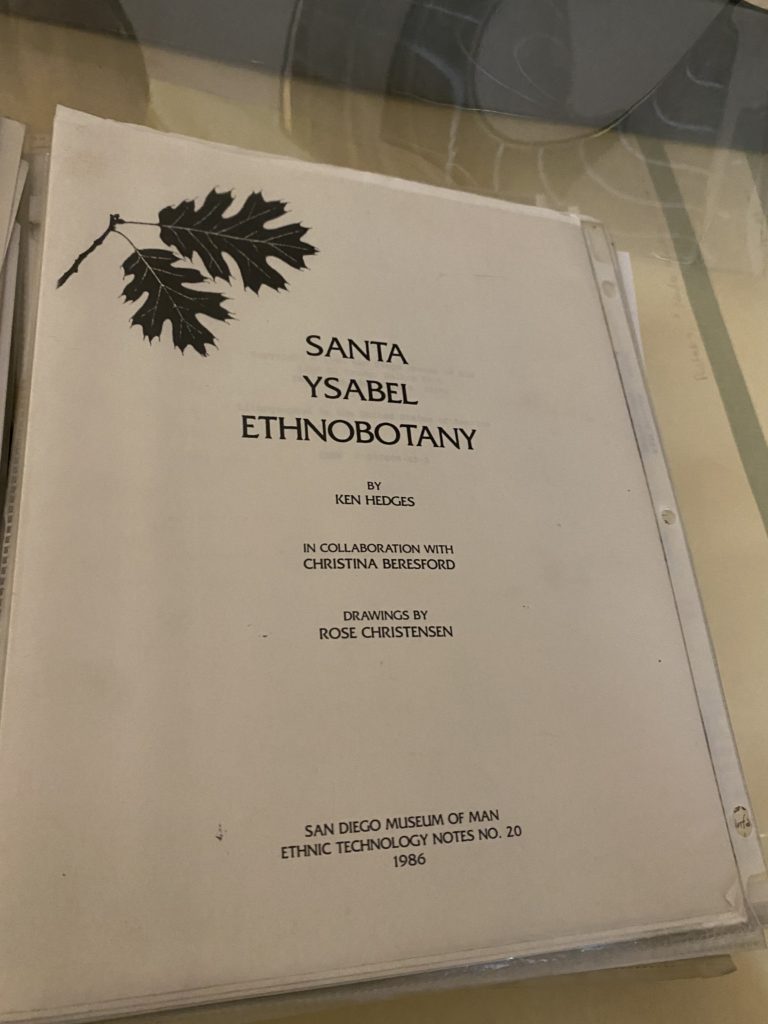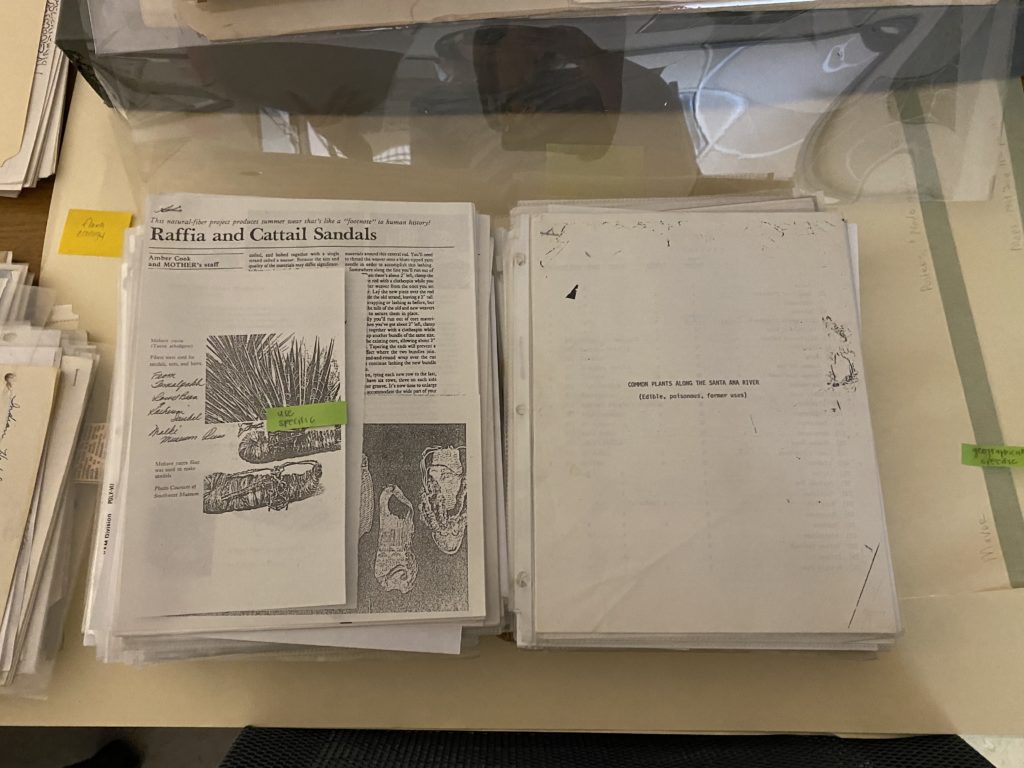As my colleague and I continue to file Barbara’s materials into their designated folders, I was fortunate enough to stake my claim over filing her research on ethnobotany, plants and vegetation. As I was doing so, I couldn’t help but think of climate change. As a gen y/gen z cusp, I have known most of my life that the planet was suffering from our wanton abuses of its many resources.
This made me think about the machinations under which our elected leaders, and elected leaders abroad, stand idly by while the planet dies before our eyes. They retain no urgency. They seemingly retain no foresight. They don’t mind if the planet is in an irreversible spiral by the time we inherit it. It is not lost on me that the world will likely look different in 10, 15, or 20 years. However, by that same tenor it is not lost on me that we might continue to see our natural resources stripped away, laid barren or depleted in the name of commercialization during that same time.
Barbara, and her ancestors that came before her, put an unmistakable emphasis on plant-based skills and food, while simultaneously cataloguing geographically relevant biodiversity as they went on. One of the most valuable things I have learned from Barbara’s collection is the incredible biodiversity represented in California, and specifically Los Angeles County. It appears to me, from her materials, that Indigenous peoples have a mutual respect for the earth. They have been exceptional stewards of the earth for centuries. And yet, colonization has deprived all of us existing today of a planet in good health. Instead, the exploitative nature of our commercialized industries and agriculture have painted us into a corner where we are rapidly losing resources and garnering natural disasters. Poignantly, Barbara’s materials allow any observer to be a more careful steward of our ailing planet. In her materials, one can find plant-based recipes that incrementally contribute to a potential decrease in the demand for animal products. In her materials, one can find instructions and suggestions on how to garden, fish and hunt, allowing the reader to devise strategies for a decreased reliance on industrialized means of production.
Simply put, there’s something worth knowing in Barbara’s collection for everyone, especially environmentalists.

